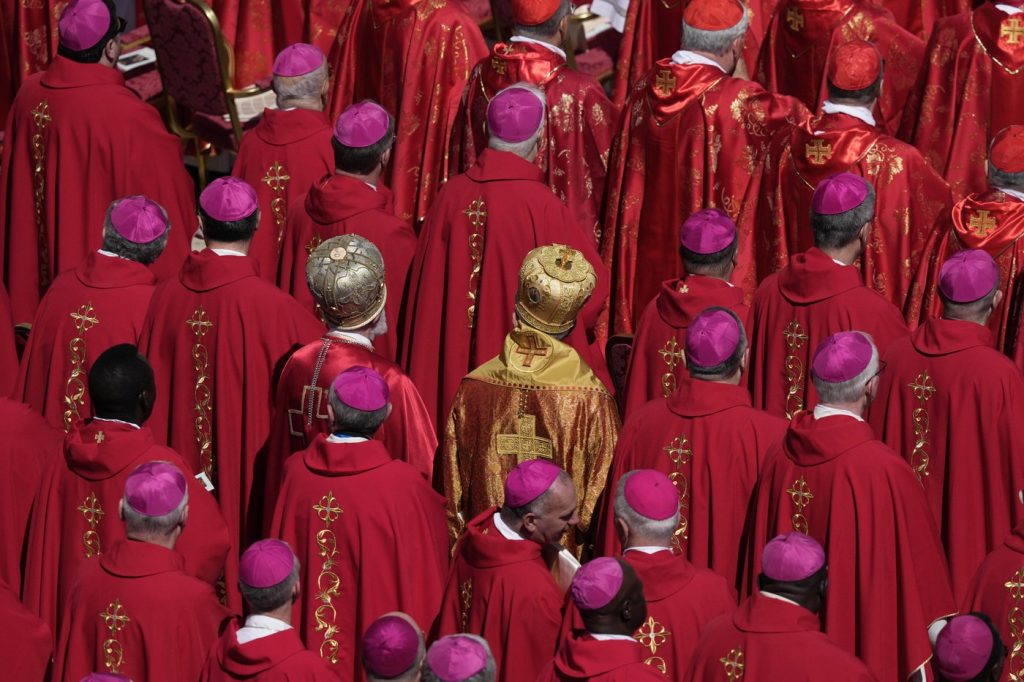VATICAN CITY (AP) – One of Pope Francis' significant legacies is the expansion of the diversity among the cardinals who will elect his successor. He appointed "princes of the church" from distant countries that had previously not had representation in the College of Cardinals. This development complicates traditional speculation about the next pope, as many of these newly appointed cardinals do not know each other well, leading to a lack of established voting blocs ahead of the conclave—the centuries-old ritual for electing a new pope.
As it stands, the only certainty regarding the upcoming conclave is uncertainty. The recent Oscar-nominated film "Conclave" has dramatized the mystery and secrecy surrounding the papal election, but real-world politics and personal dynamics will influence the more than 130 cardinals as they prepare to cast their votes in the Sistine Chapel.
No date has been set yet for this conclave, but it must commence by May 10. Following Pope Francis' funeral on Saturday, the cardinals convening in Rome will meet throughout the week to assess each other and discuss the needs of the 1.4 billion-member Catholic Church in light of Francis' revolutionary papacy.
Pope Francis served for 12 years, shifting the Church's focus from rigid doctrines toward inclusivity and welcome. For progressives, this was a return to the Gospel's core mission of serving the poor and feeding the hungry. Conversely, conservatives felt confused by Francis' introduction of flexibility in contentious cultural issues like marriage and homosexuality. Consequently, cardinals face a critical decision: should they choose a successor to continue Francis' legacy of prioritizing marginalized communities or select a leader for a course correction aimed at rebuilding unity after Francis' reforms disillusioned some members of the Church?
Another pivotal point is whether the conservative faction—which includes cardinals from Africa, Eastern Europe, and parts of the United States—holds enough influence to revert to the stricter papacies of St. John Paul II and Pope Benedict XVI. The selection of a pope in his 60s could result in a leader serving well over twenty years, while a pope emerging from more vibrant areas of the Church like Asia or Africa could disrupt the traditionally Italian-dominated Vatican bureaucracy, which has felt the effects of an independent Argentine pope.
While the field remains ambiguous regarding candidates, some names stand out due to their visibility. Cardinal Pietro Parolin, serving as Francis' secretary of state and a prominent Italian, is a key contender. Similarly, Filipino Cardinal Luis Tagle, who oversees the Vatican's evangelization office, stands out as a candidate potentially marking history as the first Asian pope. Hungarian Cardinal Erdo, 72, represents the conservative viewpoint as the Archbishop of Budapest. Yet, according to Vatican observers like Alberto Melloni, no one has secured the requisite votes to be deemed a 'front-runner,' as many cardinals are unfamiliar with one another.
The significance of 'kingmakers' in this conclave cannot be overstated. These influential figures, who are not considered as potential papal candidates themselves but can galvanize support for others, include prominent cardinals like Timothy Dolan from New York, German Cardinal Reinhard Marx, and Fridolin Ambongo Besungu, the Franciscan Archbishop of Kinshasa. Despite the majority of voting-age cardinals having been appointed by Francis, it is uncertain whether they will uniformly embrace his inclusive approach to the Church's mission. Many support notions of compassion while holding conservative stances, leading to a complex and multifaceted conclave.
Significant questions linger. One pertains to Cardinal Angelo Becciu, a previously powerful figure in the Vatican, who was forced to resign by Francis over misconduct allegations. Although his voting rights remain in limbo, he is appealing his convictions and may still participate in the conclave. Another logistical consideration is where the cardinals will reside during the conclave. The Vatican's Domus Santa Marta hotel, designed to host conclave participants, accommodates up to 120 electors. As the number of voting cardinals has risen to 135, this could result in novel arrangements during the election process.
Ultimately, the impending conclave is poised to be a critical juncture that reflects a divided Church seeking unity amid varied interpretations of Francis' legacy.











